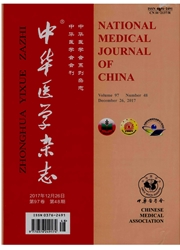

 中文摘要:
中文摘要:
背景 Adiponectin 是有胰岛素使敏感的 adipokine ,这研究的 anti-atherogenic properties.The 目的是调查低 adiponectin 层次是否在最新诊断的类型预言 endothelial 功能的缺陷在在未来的学习的8年的未来的 study.Methods 的 2 个糖尿病的病人,我们最新注册了 133 没有无临床症状的动脉粥样硬化,诊断了类型 2 糖尿病的病人并且给了他们集中的治疗;吝啬的治疗时期是治疗是的 8 years.Intensive 指向多糖症,高血压, dyslipidaemia 和 obesity.We 的行为修正和药理学治疗的逐步的实现测量了基线传播有连接酶的 immunosorbent 试金的 adiponectin ,由高分辨率的脉管的 ultrasound.At 年 8,102 病人的内皮细胞层依赖者和独立 vasodilation 为内皮细胞层依赖者和独立 vasodilation.Results 被再考调整性的 adiponectin
 英文摘要:
英文摘要:
Background Adiponectin is an adipokine with insulin-sensitising and anti-atherogenic properties. The aim of this study was to investigate whether low adiponectin levels predict the impairment of endothelial function in newly diagnosed type 2 diabetic patients in an 8-year prospective study. Methods In the prospective study, we enrolled 133 newly diagnosed type 2 diabetic patients without subclinical atherosclerosis and gave them intensive therapy; the mean treatment period was 8 years. Intensive treatment was a stepwise implementation of behavior modification and pharmacological therapy targeting hyperglycaemia, hypertension, dyslipidaemia and obesity. We measured baseline circulating adiponectin with an enzyme-linked immunosorbent assay, endothelium-dependent and -independent vasodilation by high-resolution vascular ultrasound. At year 8, 102 patients were reexamined for endothelium-dependent and -independent vasodilation. Results Sex-adjusted adiponectin level was positively correlated with endothelium-independent vasodilation both at baseline (r=0.150, P=0.043) and at year 8 (r=0.339, P=0.001), whereas no association was found between adiponectin and endothelium-dependent vasodilation. In a stepwise multivariate linear regression model, adiponectin was an independent predictor for impaired endothelium-independent vasodilation at year 8 (P=0.001). Conclusions Plasma adiponectin concentration was associated with endothelium-independent vasodilation and hypoadiponectinemia predicted the impairment of endothelium-independent vasodilation in newly diagnosed type 2 diabetic patients under multifactorial intervention. These data support the causative link of impairment of endothelium-independent vasodilation with hypoadiponectinemia.
 同期刊论文项目
同期刊论文项目
 同项目期刊论文
同项目期刊论文
 期刊信息
期刊信息
